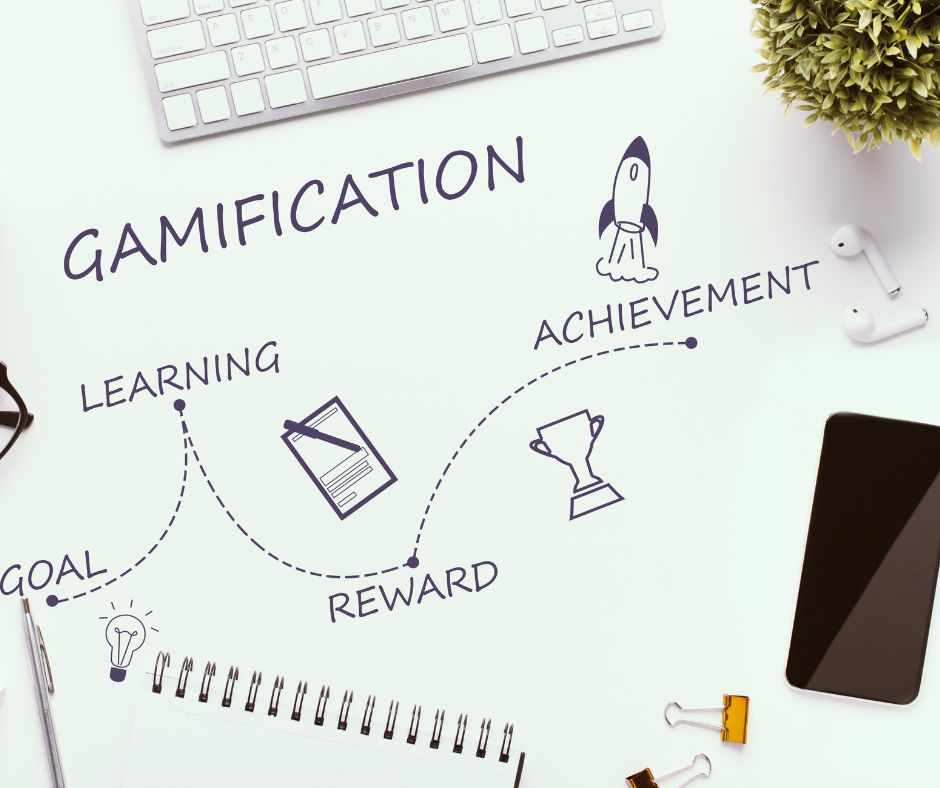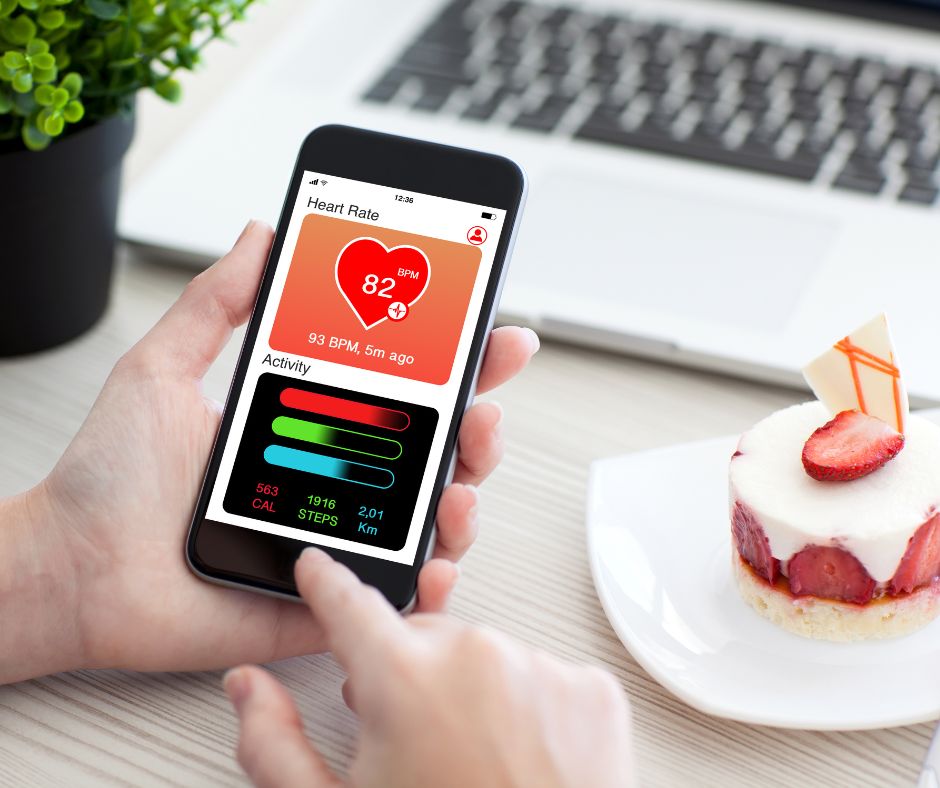Did you know that 71% of people using fitness apps abandon them within 3 months? These apps may lack health app gamification – health trackers with fun, competitive elements to keep us motivated and on track with our goals.
In this article, we’ll discuss how gamification is making health apps more engaging, effective, and enjoyable.
Contents
What is Health App Gamification?
Definition of gamification in the context of health apps
Gamification aims to make a website or app fun and motivate people to use it. This is done by employing elements from successful popular games and classical principles of human behavior.
In health apps, gamification in health apps involves incorporating game-like elements into non-gaming contexts to enhance user engagement and motivation.
This strategy approach uses the fun and competitive aspects of games to promote healthier habits. By integrating features like points, badges, and leaderboards, health apps aim to make achieving wellness goals more enjoyable and rewarding.
Elements of gamified health apps

Mechanics are gamified elements in the app that users can see and interact with. Some game elements included in these apps include:
- Points: Users earn points for completing tasks, such as logging workouts or reaching step goals. These points can be used to unlock new levels or rewards.
- Rewards and Badges: Achievements are recognized with badges, providing users with a sense of accomplishment and motivation to continue their healthy habits.
- Leaderboards and Ratings: Users can see how they rank against others, fostering a sense of competition and community.
- Progress Bars: A measurement of success toward a goal.
- Simulations: Used to upgrade clinicians’ and researchers’ technical skills, monitoring, and medical procedures, and showing visual health-related consequences for patients.
How gamification taps into human psychology for motivation
Gamification taps into motivation from intrinsic (inner) and extrinsic (outside) sources by providing immediate feedback and rewards. The sense of progress and achievement encourages users to stick with their health routines.

For example, earning a badge for completing a week of workouts can boost a user’s confidence and drive to maintain their exercise regimen. This approach leverages psychological principles such as the desire for mastery and social recognition, making health goals more attainable and engaging (Gkintoni et al., 2024; Berger & Jung, 2024).
Dynamics and aesthetics in apps
Dynamics in health apps are what keep users interested. They:
- Set and track goals
- Give out rewards
- Provide quick feedback
- Let users customize their experience
- Make the app interactive
These features help keep people engaged and motivated to use the app and work on their health goals.
Aesthetics are the emotional effects that gaming elements bring out, like curiosity, motivation, fun, connection, and winning. It’s also about the look and feel of the app.
Use cases for health app gamification

The most popular health areas using healthcare app gamification are:
- Medication and chronic conditions
- Fitness
- Physical therapy
- Mental health
- Pediatrics
Healthcare use cases for gamification include:
- Having users do specific exercises to treat ailments
- Completing competitive milestones
- Sharing progress with other users
Benefits of Gamified Health Apps
Now that we know what health app gamification is, let’s explore why it’s so effective.
Increased engagement and retention
Gamified health apps keep users engaged by making health activities fun and interactive. Features like daily challenges and quests encourage regular app use, increasing retention rates. People are more likely to stick with an app that provides a sense of accomplishment and community.
Enhanced motivation for reaching health goals

By setting clear goals and providing rewards, gamified apps motivate users to pursue their health objectives. Whether it’s losing weight, building muscle, or improving mental health, the game-like structure helps users stay focused and committed.
Note that all rewards aren’t created equal. For instance, one study with three groups of nutrition app users had different preferences (Berger & Jung, 2024):
- Older men who like routines prefer coupons and points.
- Mid-30s women who are open to new things prefer progress bars and leaderboards.
- People with high self-worth prefer progress bars and goals, but dislike social features.
These preferences relate to personality traits and demographics.
Social support and accountability through competition
Leaderboards and social sharing features create a sense of community and accountability. Users can compete with friends or join groups to tackle challenges together, fostering a supportive environment that encourages continued participation.
Improved health outcomes and behavior change
People often quit forming healthy habits over time. They may start off excited and invest a lot, but give up when the initial thrill fades.
Gamification helps with adherence to healthy habits because it:
- Offers a path to goals with small time investments
- Reinforces new behaviors along the way
- Allows a gradual increase in effort once habits are formed
- Keeps people motivated and committed
Studies have shown that gamification can lead to significant behavior changes and improved health outcomes. By making healthy habits more appealing, users are more likely to adopt and maintain them over time. For instance, nutrition apps using gamification have been effective in promoting healthier eating habits (Berger & Jung, 2024).
In short, gamification makes it easier to start and stick with healthy habits by breaking the process into fun, manageable steps. It helps overcome the common problem of people giving up when things get tough, by keeping them engaged and slowly building up their efforts over time.
Popular Features in Gamified Health Apps
To better understand how these apps work, let’s look at some of their key features.

Virtual rewards and achievements
Virtual rewards such as badges and trophies recognize user accomplishments, providing a sense of achievement and encouraging continued engagement. These rewards can be shared on social media, boosting user motivation through social recognition.
Challenges and quests
Challenges and quests offer users specific tasks to complete, such as a 30-day fitness challenge. These features provide structure and goals, making it easier for users to stay on track with their health objectives.
Progress tracking and visual representations

Visual progress tracking, such as graphs and charts, helps users see their improvements over time. This feature reinforces positive behavior by showing tangible results, motivating users to continue their efforts.
Social sharing and community building
Social features allow users to share their achievements and progress with friends and family. This creates a sense of community and support, which can be crucial for maintaining motivation and accountability.
Wearables and health apps

Mobile apps and wearable gadgets with game-like features also make health fun. These tools help people enjoy working out, eating better, and keeping track of their progress. Fitness trackers and smartwatches, let users set goals, count steps, check their heart rate, and get personal tips.
Augmented and virtual reality

Augmented Reality (AR) and Virtual Reality (VR) are two technologies that can make you feel like you’re in another world, or add digital elements to what you see. They’re also helpful to make patients feel better and teach clinicians new skills.
Top Gamified Health Apps in the Market
With all these benefits and features in mind, you might be wondering which apps to try.
Overview of leading apps using gamification
Several health apps use gamification to enhance engagement. They’ve gained popularity for their innovative use of game mechanics:
- Fitbit: Offers activity tracking and challenges, appealing to fitness enthusiasts.
- Gluroo: For diabetes management.
- Headspace: Guided meditatons and other features to improve mental health and wellbeing.
- Mango Health: Reminds and motivates patients to take their medications as prescribed.
- MyFitnessPal: Focuses on nutrition tracking with a large food database to help those who want to improve their diet and/or lose weight.
- Zombies, Run!: Combines storytelling with running, attracting users who enjoy immersive experiences.
User reviews and success stories

Users often praise these apps for making health activities more enjoyable and motivating. Success stories highlight significant weight loss, improved fitness levels, and better overall health, demonstrating the effectiveness of gamified health apps.
Designing Effective Health App Gamification
To create a successful gamified health app, consider more than just adding fun elements—it also requires careful planning and consideration.
Balance between fun and health goals

Designing a gamified health app requires balancing entertainment with health objectives. The app should be engaging without distracting from the main goal of improving health.
Personalization and adaptability
Personalization is key to keeping users engaged. Apps should offer customizable goals and challenges to cater to individual preferences and fitness levels. Adaptability ensures that users remain motivated as they progress.
Regulatory and ethical considerations (like addiction)
The FDA oversees health-related software as medical devices, referred to as “software as a medical device.” Games that help with diseases might need approval and doctor supervision. The FDA is working on a new plan to focus on digital health products that could be risky for patients.
Beware of addictive behavior

While gamification can enhance motivation, it’s important to avoid creating addictive behaviors, like “internet gaming disorder.” So health apps need to set fair goals.
For example, step goals should match a person’s health and abilities. Setting goals too high can cause stress and be harmful. The aim should be to motivate, not manipulate. Good health apps respect users’ choices and clearly explain how they use game-like features to help.
Because of these concerns, experts think these apps should be tested for safety before people can use them. Developers should focus on promoting healthy habits without encouraging excessive app use or dependency.
Maximizing Your Experience with Gamified Health Apps
Now that you know what to look for in a gamified health app, here are some tips to get the most out of your experience.

Setting realistic goals and expectations
It’s important to set achievable goals that align with your lifestyle and fitness level. Realistic expectations prevent frustration and help maintain motivation.
Engaging with the app’s community features
Participating in community features, such as forums or group challenges, provides additional support and accountability. Engaging with others can enhance your experience and keep you motivated.
Combining app use with real-world activities
While gamified apps are a valuable tool, combining them with real-world activities can enhance your health journey. For example, use a fitness app to track outdoor runs or join a local sports team for social interaction.
Tracking progress and celebrating milestones
Regularly tracking your progress and celebrating milestones can boost motivation and reinforce positive behavior. Acknowledge your achievements and use them as motivation to continue your health journey.
Conclusion
Health app gamification can make the journey to our wellness goals more fun. By incorporating game-like elements, these apps make health activities more rewarding, which can lead to improved health outcomes and sustained behavior change. Whether you’re looking to improve your fitness, diet, or mental health, gamified health apps provide a fun and effective way to achieve your goals.
Ready to level up your health game? Download a gamified health app today and start your fun-filled path to better wellness!
References
Berger, M., & Jung, C. Gamification preferences in nutrition apps: Toward healthier diets and food choices. Digital Health; 10. doi.org/10.1177/20552076241260482
Gamification in Healthcare: Increase Loyalty and Motivation Among Your Patients and Medical Professinoals. (n.d.). Emerline. Retrieved from https://emerline.com/blog/gamification-in-healthcare
Gkintoni, E., Vantaraki, F., Skoulidi, C., Anastassopoulos, P., & Vantarakis, A. (2024). Promoting Physical and Mental Health among Children and Adolescents via Gamification—A Conceptual Systematic Review. Behavioral Sciences; 14(2). doi.org/10.3390/bs14020102
Golovnia, S. (2024). How to (And Why You Should) Incorporate Gamification into Your Mental Health Care App. SF AppWorks. Retrieved from https://www.sfappworks.com/blogs/incorporating-gamification-into-your-mental-health-care-app
Lech, E. (2024). Gamification in healthcare: Short guide for app founders. Pragmatic Coders. Retrieved from https://www.pragmaticcoders.com/blog/gamification-in-healthcare-short-guide-for-app-founders
Legourd, J. (2022). The Gamification of Healthcare: Emergence of the Digital Practitioner? Elfie. Retrieved from https://www.elfie.co/knowledge/the-gamification-of-healthcare-emergence-of-the-digital-practitioner
Megan, S. (2022). Gamification in Healthcare Apps: Use Cases & Amazing Benefits. Digital Doughnut. Retrieved from https://www.digitaldoughnut.com/articles/2022/september-2022/gamification-in-healthcare-apps-use-cases
Milioto, M. (2024). 159 Key Fitness App Stats for 2024: Trends by Age, Market & More. Dr. Muscle. Retrieved from https://dr-muscle.com/fitness-app-stats/
Pavlov, I. (2023). 3 Main Components of Gamification to engage users in Health Apps. Nozomi. Retrieved from https://nozomihealth.com/3-main-components-of-gamification-to-engage-users-in-health-apps/
Shukla, A. (2023). Gamification Tricks from Psychology. Cognition Today. Retrieved from https://cognitiontoday.com/gamification-tricks-from-psychology/
Struk, V. (2024). Redefining Patient Engagement: The Impact of Gamification in Healthcare. Relevant Software. Retrieved from https://relevant.software/blog/gamification-in-healthcare/#Ethical_Considerations_and_Risks_in_Gamifying_Healthcare
Suk, J. (2024). How Can Gamification Be Used in the Healthcare Industry? HurixDigital. Retrieved from https://www.hurix.com/how-can-gamification-be-used-in-the-healthcare-industry/
Terehin, A. Gamification in Healthcare: Benefits, Trends & Examples. (2024). Agente. Retrieved from https://agentestudio.com/blog/healthcare-app-gamification

















